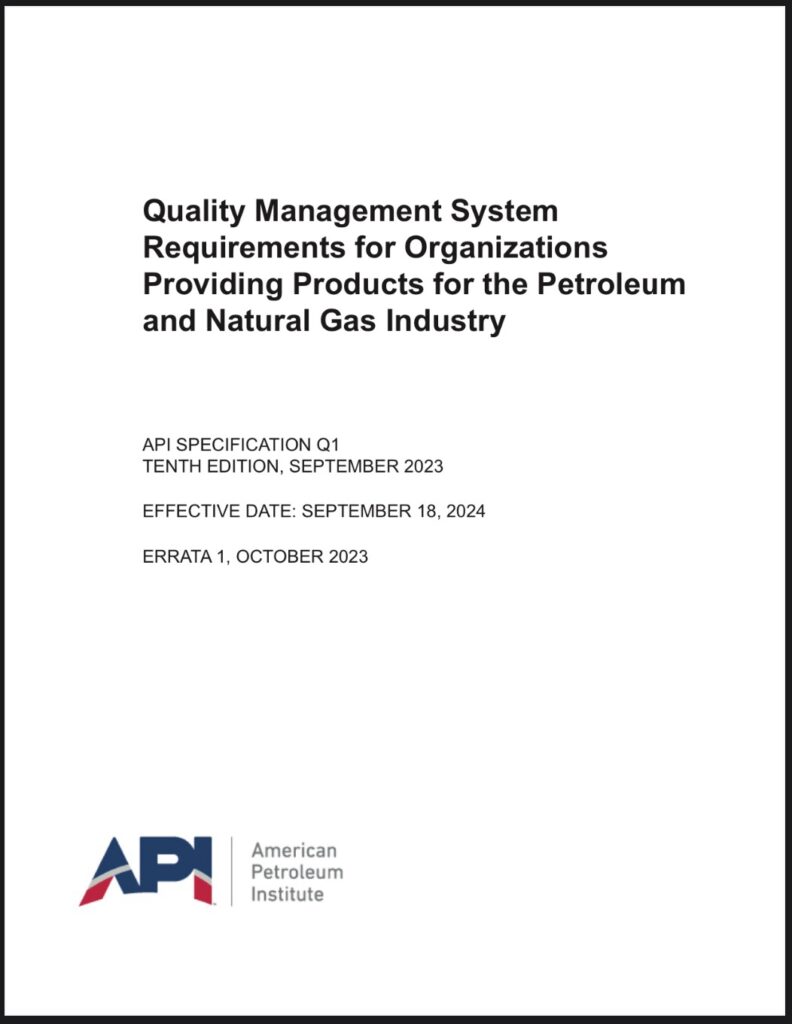
As you might’ve noticed in the past several weeks, I’m working on my understanding of the international standards that apply to my current work and beyond. Today I’ll share another API Spec that’s closer to home, QMS.
In many ways ISO9001 and API Q1 are similar because both cater for quality management system standard for companies. The main difference is ISO9001 is suitable for most industries and Q1 specifically designed for organizations in the oil and natural gas industry to address its unique risks and quality requirements.
Here are some points summarizing API Q1:
- Scope: API SPEC Q1 outlines the requirements for establishing, implementing, maintaining, and continually improving a quality management system for organizations involved in the design, development, production, installation, and service of products in the petroleum and natural gas industry.
- Applicability: The standard is applicable to a wide range of organizations, including manufacturers, service providers, and suppliers in the oil and gas sector, ensuring a consistent approach to quality management throughout the industry.
- Risk Management: Q1 emphasizes the importance of risk assessment and management in the context of the organization’s processes, products, and services. This includes identifying, evaluating, and addressing risks to achieve better overall performance.
- Documented Information: The standard requires organizations to maintain documented information to support their quality management system, including policies, objectives, procedures, and records necessary for effective operation.
- Product Realization: It outlines requirements for the planning and execution of product realization, covering aspects such as design and development, purchasing, production, and service provision to ensure the consistent delivery of high-quality products and services.
- Measurement, Analysis, and Improvement: The standard places a strong emphasis on monitoring, measurement, analysis, and improvement of processes. This includes the use of performance indicators and data to drive continual improvement throughout the organization.
- Competence and Training: API SPEC Q1 addresses the competence of personnel by defining requirements for education, training, skills, and experience. Ensuring that employees are adequately qualified is crucial for maintaining a high level of quality in products and services.
- Customer Satisfaction: The standard highlights the importance of understanding and meeting customer requirements, as well as monitoring and measuring customer satisfaction. This customer-centric approach is integral to the success of organizations operating within the oil and gas industry.
- Internal Audits: API SPEC Q1 requires organizations to conduct internal audits to assess the effectiveness of their quality management system. These audits help identify areas for improvement and ensure ongoing compliance with the standard.
- Management Review: The standard mandates regular management reviews to evaluate the organization’s quality management system, ensuring its continued suitability, adequacy, and effectiveness. This involves examining internal and external factors that may impact the organization’s ability to meet its objectives.
Ofcourse there’s more about API licensing, monogram and APIQR certification and there’s the API Q1 Auditor training + examination for certification. I’ll read them and share here later.
May you be well, lifelong learners~
Cheers 🥂 MFR